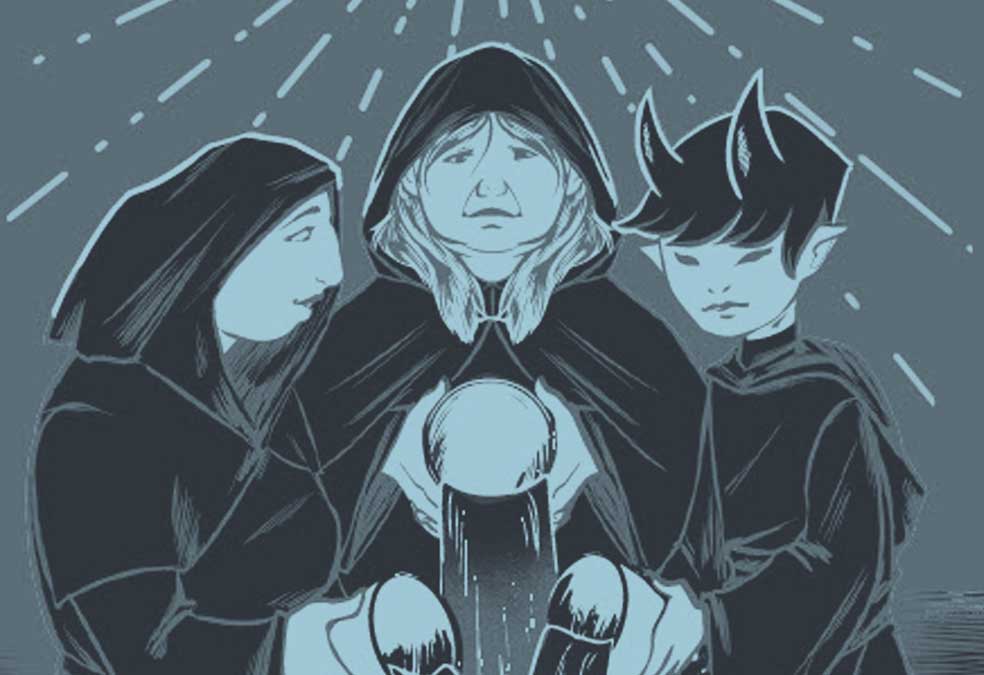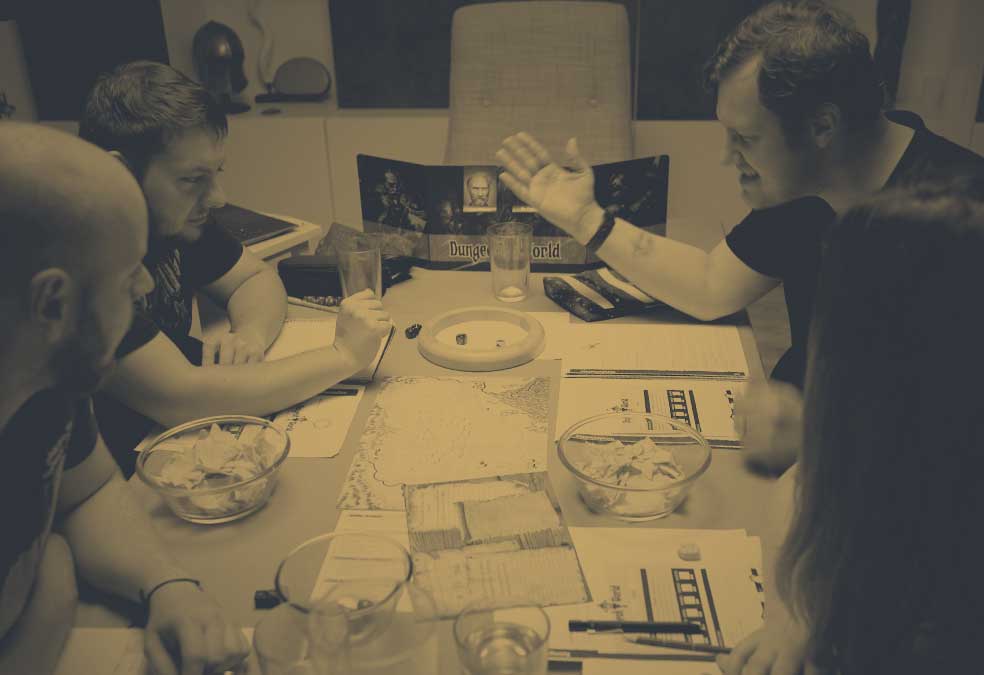What is Mythos World about?
Mythos World is a fresh interpretation of the Call of Cthulhu roleplaying game. Just like in the original version, the player characters are a group of investigators solving mysterious cases of murder and missing persons. The setting is the interwar period in the 1920s in our world. The antagonists are usually fanatic cultists and their global networks, who worship aeon-old gods with power beyond human imagination. Using the PBTA rules system, Mythos World delivers a new take on the Cthulhu Mythos setting: It partly moves narration rights to the players and it shifts the focus away from the story onto the player characters. In this review, we’ll take a look at how this works out.
The tone of Mythos World: Subtle horror
Mythos World clearly aligns its topics and content with the original Call of Cthulhu RPG and Lovecraft’s Cthulhu Mythos. This means it delivers subtle horror, which is difficult to grasp through the course of the story. This horror will gradually be unraveled by the players’ investigations, inevitably leading to a big revelation in the finale. It makes for a special atmosphere, when cryptic lore found in old dusty tomes and vague hints from questionable informants finally merge into a dreadful complete picture, shaking the player characters’ view of the world to its core.
Doing research and connecting the dots are at the forefront of the game. The investigators need to keep a cool head, as some findings cannot be explained with rational thinking. There is clearly no emphasis on fighting monsters. Encounters with supernatural entities usually means one or more player characters will find a quick and gruesome end, as they are not super-heroes but characters from everyday life. Cthulhu scenarios are known for their high mortality rate. This stresses the dark tone of the setting.
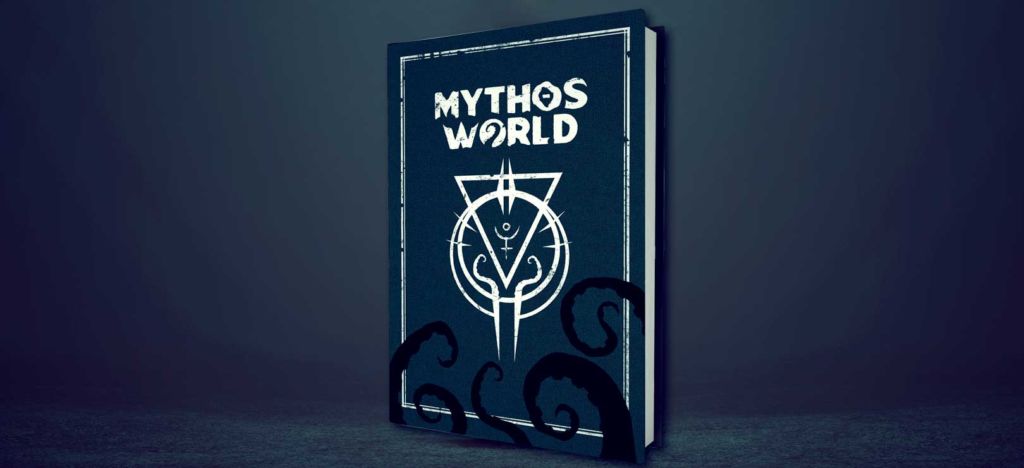
A short summary of the PBTA rules
PBTA rules differ from most other RPG systems in two aspects: (1) During character creation, you create very strong plothooks with the characters’ backstory and motivations and (2) the dice mechanics allow players to alter the story progress. Let’s take a look at what this means.
1. Character-focused stories
When creating your characters in a PBTA game, you spend a lot of time defining their goals and motivations. What drives a character to plunge headlong into dangerous investigations? What do they want to achieve? The PBTA rules provide a list of atmospheric motivations and passions for each character class. This leads to great plothooks for the GM. Here’s an example: One of the players picks the passion, “My job is to tell the stories no one else will” for her Journalist character. This gives the GM a hint to include stories about fringe groups.
2. The dice rolls carry the story forward
Huge parts of the story in PBTA games are developed during play. This concept is called “Play to find out”. For each dice roll, there are three possible outcomes.
a) Phenomenal success: The action succeeds. Additionally, the story takes a favorable turn for the players. They can choose from a list of benefits.
b) Barely a success: The action succeeds. Additionally, troubles in the story result from it. The players choose from a list of complications.
c) Fail: The GM decides, how the situation turns out. This often means more problems for the players.
Here’s an example of the rules for the move, “Search for Something”.
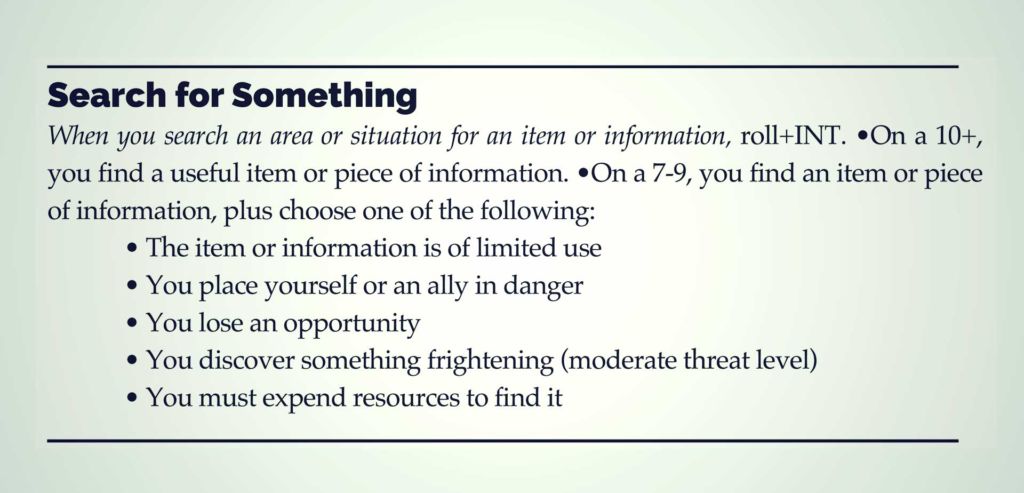
“Play to find out” is a core concept for most PBTA games. It gives the player more narration rights and relieves the GM of a lot of preparation work. Of course, all players should have some improvisation skills to make this work. The cool thing about this is that even the GM will be surprised by the outcome of the story. Instead of being the main entertainer or facilitator for the game, the GM gets experience the story as a player to a certain degree.
Layout and contents of the book
Mythos World has a clean and functional layout. Like for most indie games, there is no big budget for illustrations or perfect design. But overall, I think the crew behind Mythos World did a good job with the resources that were available to them. The images and layout of the book don’t really match the high quality of the overall system. The book is definitely well structured and it’s easy to find what you need, even during play.
If you speak German, then consider yourself lucky, as German publisher System Matters did a German version of Mythos World with a completely new layout and their own illustrations. It’s a real gem. Check it out here: https://www.systemmatters.de/shop/mythos-world/
Why do we need another RPG system for Cthulhu?
The original “Call of Cthulhu” might have aged well thanks to its simplistic rules. But many of its scenarios are rather linear and based on a recurring plot structure. They always start off with a mysterious incident, then the players search for clues to reveal what’s going on. Finally, they need to sabotage a foul occult ritual in the finale. To make this three-act structure work, the GM usually needs to do a lot of preparation and the players need to go along with this kind of story arc.
This is where the PBTA systems use a different approach. The scenarios to have rigged beginning, but afterwards, there is no predetermined plot. Instead, the GM gets a building kit with these three parts: (a) a roughly outlined setting, (b) a list of mysterious happenings and risks the players have to face, and (c) a set of clues. Now, if you combine bits of each of the three categories with the plothooks and relationships from character creation and also throw in the outcomes of the dice rolls (see above), you get a convincing and exciting story. Even though three quarters of the story is improvised, this system works surprisingly well. Additionally, there is a lot of player buy-in, as the GM shares narration rights with them. Providing rule mechanics that combine all these moving parts into an atmospheric story during play is a great feat.
I was very skeptical when I first heard about these PBTA mechanics, but after playing several PBTA sessions, I am a big fan now. Just from reading, I could not understand why there was such muhc hype around PBTA games. That’s why I can only recommend participating in a PBTA game as a player to try it out.
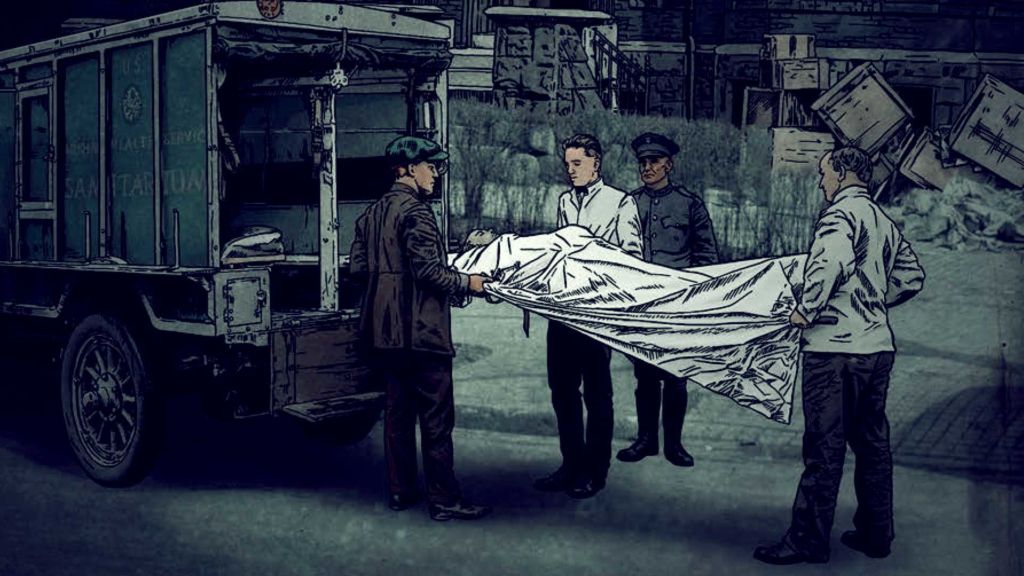
Does Lovecraftian horror work with an improvised story?
For me, the best Cthulhu adventure are those that manage to scare or unsettle the players themselves and not just their characters. I like it when the players are initially confused by all the clues and what’s going on in the story. And then all those moving parts finally merge together, maybe after a clever twist, to form a shocking revelation. By the way, this is only true for about 10% of all published Call of Cthulhu scenarios.
Can Mythos World deliver such brilliant twists and surprises? I don’t think so. To get there, you need a well-orchestrated plot with precisely timed scenes, which usually needs a lot of preparation and is pretty hard to improvise. Can Mythos World provide the Cthulhu Mythos feeling for the remaining 90% of the published scenarios? Yes, definitely. And it does so with little preparation work for the GM and also with high player buy-in. But for this you need to accept that the plot’s secrets are not hidden by the GM behind his screen. Instead the twists and turns of the story come from having everyone at the table pitch in their ideas.
That’s why I doubt that Mythos World can replace the classic Call of Cthulhu RPG. But it provides a clever new approach to the genre, which makes the Cthulhu Mythos setting more accessible for people who find the traditional rule system too rigid or dislike plots with a lot of railroading.
Buy Mythos World on Drivethrurpg.com
You can get Mythos World here as a as a pdf for $8:
https://www.drivethrurpg.com/product/154364/Mythos-World
(We’re not getting paid to promote Mythos World. We’re just big fans of PBTA games)
https://www.drivethrurpg.com/product/154364/Mythos-World
(We’re not getting paid to promote Mythos World. We’re just big fans of PBTA games)
Using Call of Cthulhu scenarios for Mythos World
There is a large number of scenarios for the classic Call of Cthulhu RPG from Chaosium. Can you play those with Mythos World, too? The answer is yes, if you adapt them a little. The classic CoC adventures are characterized by a middle section (the investigation), in which the clues can only be found at predetermined, fixed locations; the occult tome lies in the closed-off section of the library, the informant only reveals herself as soon as the players have scared off the mafia bagmen, and so on.
Here, Mythos World needs a bit more flexibility. To make the improvised plot work, there needs to be more than one single way to find certain clues; e.g. the ancient tome can be found not only in the library, but also at the antiquarian bookshop or on the local black market. Sure, you could call this hand waving or even cheating. I’d rather call it a “kind concession” toward the players to keep the flow of the story running and to anticipate frustrating cul-de-sacs. With this kind of flexibility, Mythos World provides a great gaming experience since the players can influence the course of the story according to what they would like to see.
A trial run with editor-in-chief Stefan Droste
Here, Mythos World needs a bit more flexibility. To make the improvised plot work, there needs to be more than one single way to find certain clues; e.g. the ancient tome can be found not only in the library, but also at the antiquarian bookshop or on the local black market. Sure, you could call this hand waving or even cheating. I’d rather call it a “kind concession” toward the players to keep the flow of the story running and to anticipate frustrating cul-de-sacs. With this kind of flexibility, Mythos World provides a great gaming experience since the players can influence the course of the story according to what they would like to see.
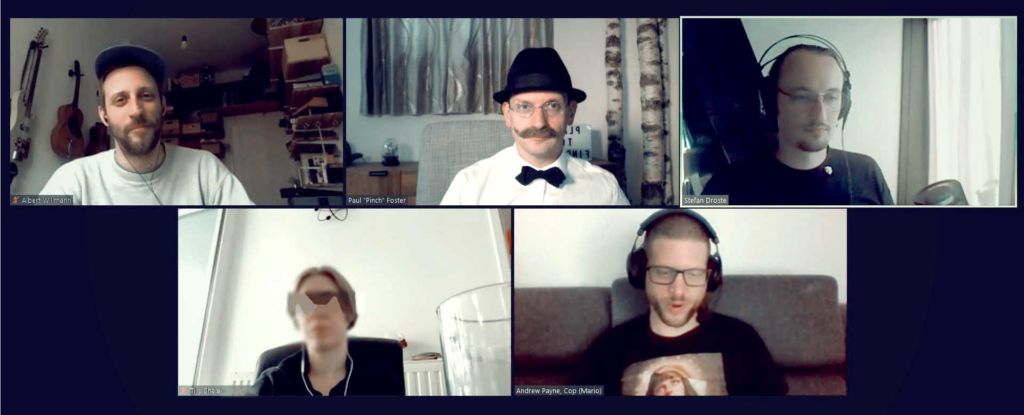
At this year’s 3W6 online convention I got lucky enough to nab a seat at a Mythos World session hosted by Stefan Droste, the editor-in-chief for the German adaption of Mythos World. The character creation part was already great fun, as we were able to influence the scenario by choosing our character motivations and passions. The story was about a meteorite that struck a field at the edge of town. One player picked the Farmer profession, so the meteorite crashed in one of his fields. The following adventure was really exciting.
The feedback after play was very positive, too. We all said that the story felt like a classic Call of Cthulhu adventure, but parts of it seemed to be a bit linear. I was pretty surprised when the GM told us that he had not prepared a storyline. Instead, the plot had developed during play by our actions and dice roll results. His job was only to guide us from one scene to the next. It was very impressive to see that “play to find out” also works with the Cthulhu Mythos setting.
Mythos World vs. Tremulus
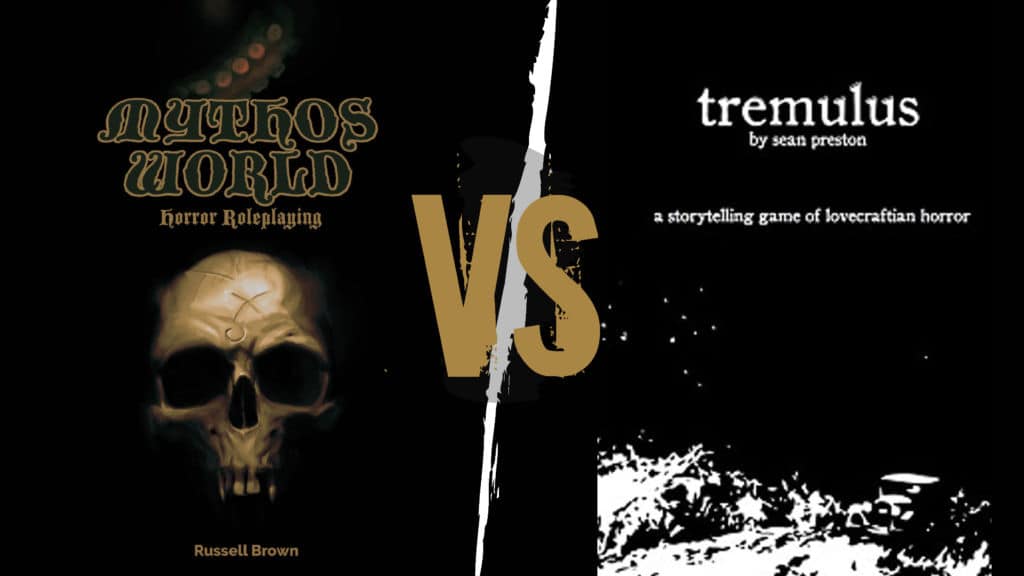
Aside from Mythos World, there is a second PBTA adaption of the Call of Cthulhu RPG called “Tremulus.” Both systems were published in 2015 and, at their core, their contents are 70% alike. In online communities and forums, people always ask which one is better. Here is a comparison of the advantages and drawbacks of both systems.
Mythos World |
Tremulus |
|
|---|---|---|
| Layout and structure | ★ ★ ☆ ☆
Basic layout, well-structured and easy to read, black and white, illustrations are stock-images from the 1920s. |
★ ☆ ☆ ☆
Basic Layout, structure could be improved, black and white, illustrations are minimalistic. |
| Game mechanics | ★ ★ ★ ☆
Well-structured explanations, good introduction to the PBTA play style. |
★ ★ ★ ☆
Well-structured explanations, good introduction to the PBTA play style. |
| Character generation | ★ ★ ★ ☆
Many character classes, character moves are explained well, includes character motivations, which provide plothooks for the GM. |
★ ★ ★ ☆
Many character classes, character moves are explained well, unfortunately, no character passions (motivations) provided. |
| GM tips and adventure creation | ★ ★ ☆ ☆
GM tips section is rather short, needs a lot of prior knowledge about running Call of Cthulhu scenarios. Focus lies on “Play to find out” and sharing narration rights. |
★ ★ ★ ☆
Long chapter on GM tips for horror scenarios, detailed adventure building kit providing plothooks, NPCs and Cthulhu Mythos aspects. |
| Ready-made scenarios | ★ ☆ ☆ ☆
Three very short scenarios, kept simple to suit “Play to find out”. Solid run-off-the-mill Cthulhu adventures. |
★ ★ ★ ☆
A single high quality setting with many optional plotlines. Explains how the scenario building kit works. Good compromise between dramatic composition and player involvement. |
So which one is better? That depends on your personal preferences and your style of play.
Tremulus provides a good compromise between a prepared plot and storylines that are improvised with the players during the game session. So it’s not a full-fledged “Play to find out” storygame. That makes it a good choice for GMs who still want to retain a certain amount of control over the plot. On top of that, it has a really helpful scenario building kit. And because it comes with a comprehensive chapter on how to GM Cthulhu-related adventures, Tremulus is a good fit for GMs who are less experienced with the setting.
Mythos is a genuine story game, where the story is created during play and narration rights are shared between the GM and the players. Its rules offer a really good link between player character motivations and the plot. But it requires the GM to have more prior knowledge about the Cthulhu Mythos setting. Its GM tips section is rather short and the included scenarios are mainly geared toward veteran Cthulhu GMs, who are able to link the lists of clues and NPCs with the inputs from the players to generate a well-rounded story.
There is no real winner here. As a fan of both the Cthulhu setting and PBTA games, I bought both RPGs because the PDF versions don’t cost a fortune. I usually combine the character creation from Mythos World with the adventure building kit from Tremulus to get the best of both worlds.
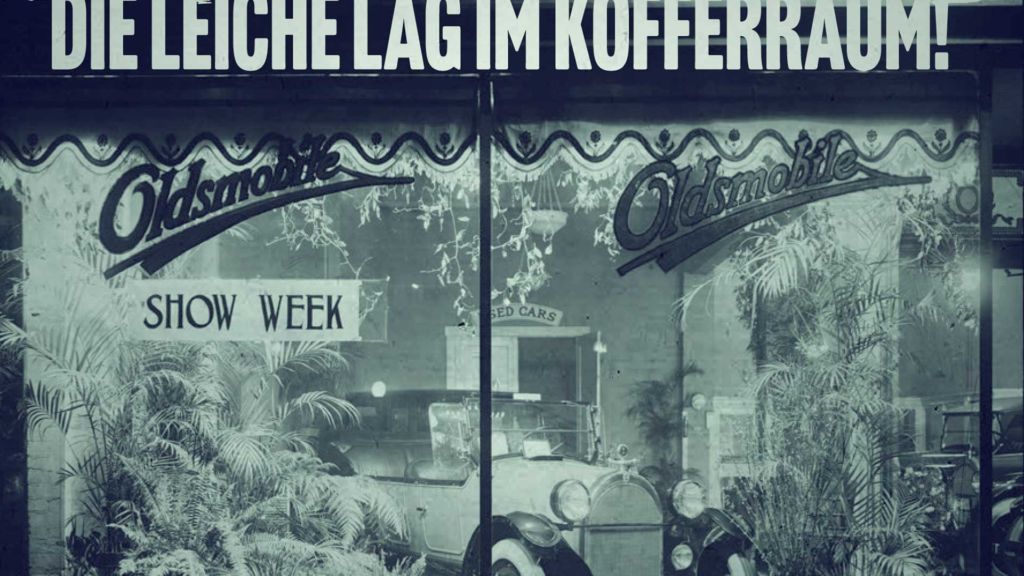
Summary: A brilliant new take on the Cthulhu RPG genre
Mythos World delivers a great new take on the Cthulhu Mythos roleplaying game. The character backstories are more intricately woven into the plot, and there is more player buy-in thanks to the shared narration rights. Additionally, the GM can enjoy story twists and turns from their own players’ perspective thanks to the “play to find out” concept of the PBTA rules. There might be some difficulty when trying to use the Mythos World rules for classic Cthulhu scenarios with complex stories and planned twists. The high degree to which the stories are being improvised comes with the risk of the carefully laid out plot derailing at some points. Depending on your group’s play style and preferences, this can either be a blessing or a curse. Still, I’d strongly recommend buying Mythos World (or Tremulus) for any GM fond of Call of Cthulhu scenarios.
You can buy Mythos World here: https://www.drivethrurpg.com/product/154364/Mythos-World
You can buy Mythos World here: https://www.drivethrurpg.com/product/154364/Mythos-World
Recent Posts ⏶
Creating Gods for your Tabletop RPG Setting
15. November 2021
Wickedness – A Story Game about Witches
23. September 2021
Dungeon World Session Recap
4. August 2021
Factbox
Mythos World RPG
Author: Russel Brown
Release Date: August 2015
Pages: 164
Themes: Lovecraftian horror, cosmic horror, investigation, mystery, 1920s
Author: Russel Brown
Release Date: August 2015
Pages: 164
Themes: Lovecraftian horror, cosmic horror, investigation, mystery, 1920s
Recent Posts ⏶
Creating Gods for your Tabletop RPG Setting
15. November 2021
Wickedness – A Story Game about Witches
23. September 2021
Dungeon World Session Recap
4. August 2021




